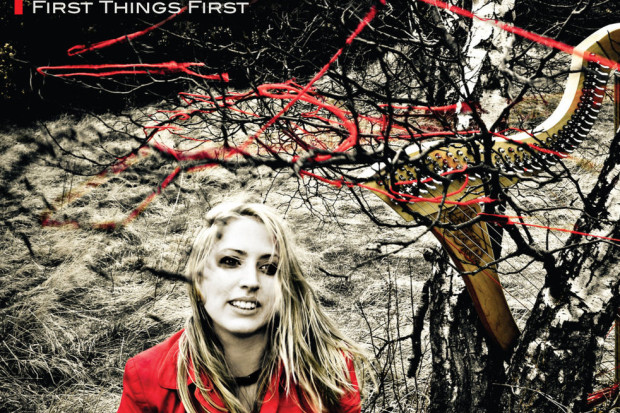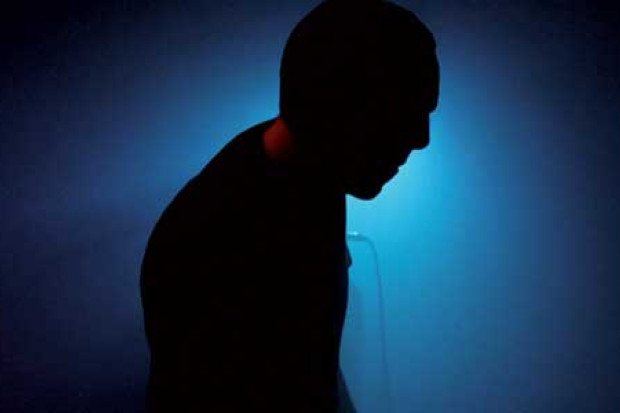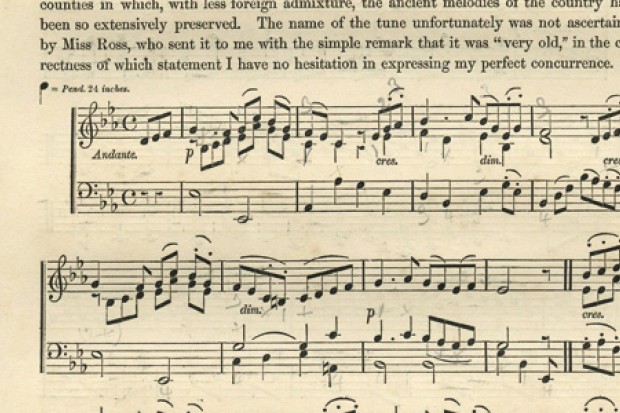United Bible Studies
United Bible Studies is a rotating collective of mostly Irish musicians that pivots round two core members, Gavin Prior and Shane Cullinane. The group work in a loosely-experimental style that constellates shards of improvisation and prog rock around what are essentially folk-based musical forms.
Theirs, however, is largely the ‘free’ or ‘apocalyptic’ folk of groups such as Current 93 or Sol Invictus, the sort of eschatological, darkening folk heard in embryo on Bowie’s Man Who Sold the World album. Thus the gothic and shadowy lyrics on United Bible Studies’ new album, The Jonah, focus on primordial forces and on aesthetics of death, whilst its music marries acoustic drones and repetitive picking patterns to synth-shadings and post-industrial dissonance and colour. The group introduce foreign elements to the mix too, including regular detours into loose-limbed passages of improvisation and even some unexpected deviations into doom and screamo styles.
The album opens with ‘The Swallowing’, a menacingly atmospheric but worryingly derivative (of Current 93) nursery rhyme incantation. Despite its flagrant derivation, this track works well as an advance into the sixteen-minute long suite, ‘The Jonah’. Made up of portentous instrumental insinuations, flickers of harsh noise, passages of obscurantist folk, abstracted ambient sections, fuzz bass psychedelia à la Can and two climactic minutes of shrieking vocals and doom guitars (without the bottom-end weight), this track is as thrilling as it is frustrating. Each bold new slab of sound urges the listener to twist their mind askew once more, but the styles are simply too many, and the structure too slack, to be convincing. A distinct lack of focus pulls the exciting sounds of this track away from the edge of the delight they come so close to generating.
Similar problems are in evidence elsewhere. ‘A for Andromeda’ starts out like a drugged-out Bowie, moves into folksy ambience (sloppily performed and poorly recorded in terms of clarity of sound), before a distinct change in definition and momentum for its last two minutes of dreamy guitar-led meandering. The structure is just lazy. The arrangement and performance of the traditional English shanty ‘The Lowlands of Holland’ is much more focused. Building from an expressive duet between Dave Colohan and Sharron Kraus, the band slowly caress a growing intensity from thickening textures and an estrangement of line, with the vocals from guest Alison O’Donnell shading rich descants out of the sturdy vocal ground of the song.
Two modest but vividly coloured instrumentals in more conventionally traditional modes provide contrast. The rustic cello and parlour guitar of ‘Mirror in Cherwell’ are well-judged in their restraint. The buoyant string and accordion patterns of the slip-jig/hornpipe folly ‘Skelly’s Fireplace’ offer a pleasing sense of propulsion, though the playing could do with being much tighter. The steady through line of these tracks, along with the jaunty lyricism of the unassuming and nicely fleshed-out closer ‘Death in the Arctic’ and the ancient redolence of ‘Veil Song’, counterpoint the occasionally palling gothic bombast and roughness of some of the other tracks well.
It has to be said that this is an album full of ideas and energy. It is a collection of music that is vibrantly coloured by an experimental folk manner too little in evidence in Ireland.
Published on 1 October 2009
Stephen Graham is a lecturer in music at Goldsmiths, University of London. He blogs at www.robotsdancingalone.wordpress.com.












